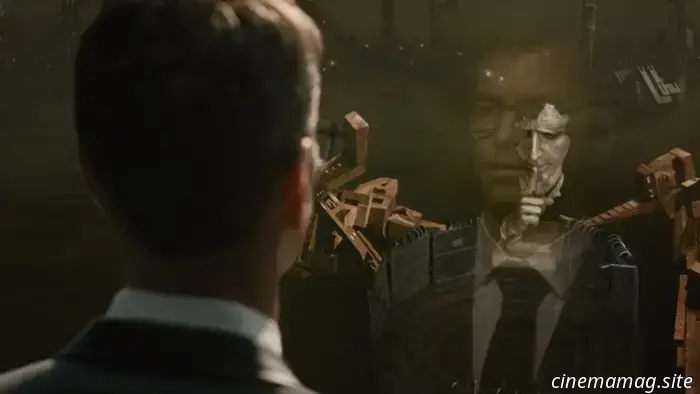
Tiffany Kimmel's 'Civil Service' examines tyrants who harbor contempt for the very people they claim to serve.
Tiffany Kimmel, the writer and director of the daring new short film “Civil Service,” shares that her complex motivation for becoming a storyteller was, “I grew up wanting to tell provocative stories to earn my grandmother's love.”
Raised in a rural Oregon family compound, she was homeschooled with a strong influence of religion. Kimmel explains that her grandmother, Ardis, frequently expressed that she never wanted children and, by extension, did not desire her grandchildren either.
“She often said her life would have been perfectly fine without us. We made her feel old,” Kimmel recalls. “Every day, when I brought her the mail or as she walked down the gravel driveway to our house, she’d say, ‘Tell me a story, even if you have to make it up. Make it good.’”
Her latest engaging story, “Civil Service,” had its world premiere at the recent Indy Shorts International Film Festival, recognized by MovieMaker as one of the 50 Film Festivals Worth the Entry Fee and 25 Coolest Film Festivals in the World. The short depicts a powerful bureaucrat (Eric Toms) in a dystopian society, who keeps a receptionist hidden in a desk drawer while making everyone else wait. He dispenses housing and necessities based on his whims and occasionally dark ulterior motives.
The film integrates animation and miniatures to evoke tension between the familiar scenario and its dreamlike setting. Kimmel collaborates closely with artists Chris Alsop and Eric Oxford, with whom she previously worked on the award-winning stop-motion short “Everybody Goes to the Hospital.”
Kimmel and Alsop, a writer and illustrator, develop projects under the Nihil Declarandum label, and she is currently working on her first feature film with Mackinnon & Saunders. She has also been a writer and producer for various commercial agencies and production companies, including Gentleman Scholar, Technicolor/MPC, Pulse Films, iDeA: Intelligent Design Agency, and A24.
We exchanged emails to discuss themes of pettiness, the striking aesthetic of “Civil Service,” and her upbringing with limited media exposure.
MovieMaker: How did your conversations with your grandmother inspire your journey into filmmaking?
Tiffany Kimmel: I didn’t recognize at the time that she was preparing me for a life in the industry. I became a filmmaker unintentionally. Working in L.A. as a frustrated freelance writer trying to land a job, I grew weary of being told that my stories were fantastic, but!
To get staffed or sell my ideas, I needed to abandon writing original screenplays in favor of adapting my voice to mimic popular showrunners or authors. Original pilots were reserved for established writers; everyone in LA is a ‘baby-writer’ until they have enough “good” credits.
I wanted to tell stories that evoke feelings people don’t wish to confront, and I was committed to doing so with whatever production resources I could gather. I sought to express the uncanny nature of being raised on the fringes of society in a way that felt both familiar and entirely different. So, I leaned into my fundamentalist homeschool background and began translating stories into emotional truths, charting my own path like many indie filmmakers.
Tiffany Kimmel on Understanding a Tyrant’s Motives in ‘Civil Service’
Credit: Nihil Declarandum
MovieMaker: “Civil Service” centers on a petty tyrant. What motivated you to focus on such a character? His cruelty seems tied to his mother's disapproval as well as his apparent desires and frustrations. What did you want to convey about him?
Tiffany Kimmel: Many stories address unjust behavior and overcoming adversity, but often it is pettiness that unites us. It is the shared trait that connects our actions to those we despise most.
In searching for empathy for current political figures who seem to disdain the very people they are meant to protect, I wanted to delve into the universal behaviors within myself and trace those actions to their illogical and cruel conclusions.
MovieMaker: Several elements in “Civil Service” remain unexplained, such as how this world deteriorated and the receptionist being hidden in a desk drawer. How do you determine what the audience needs to know?
Tiffany Kimmel: The fantastical aspects of “Civil Service” serve to engage viewers in an otherwise unsympathetic narrative about a man wielding his tyrannical power over others. These magical elements provide a visual lightness to the otherwise monotonous brutality of the story. The Civil Servant serves as a modern customer service agent who aims to dominate his clients rather than assist them. The opposite of the adage ‘the customer is always right’ is true here: WRONG.
Given that it is an emotionally driven piece, the story, events, and dialogue are less crucial than the emotional journey — I hope it evokes empathy for someone we would typically revile.
MovieMaker: You serve not only as the writer and director of this film but also as the production


Other articles
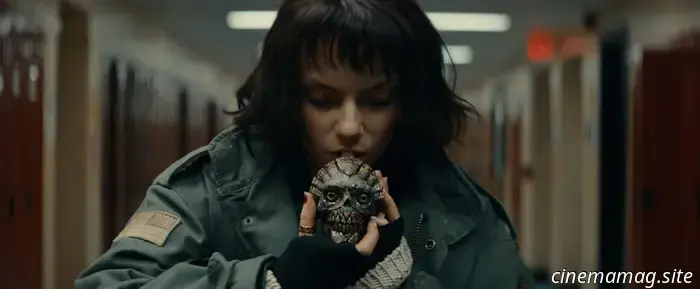 Dafne Keen lets out a whistle in the trailer for the horror film directed by Corin Hardy.
IFC Films has released the initial trailer for Whistle, the forthcoming horror film directed by Corin Hardy (The Nun). When a group of high school students comes across a cursed Aztec Death Whistle, they realize that the chilling sound it produces summons death to pursue them, prompting them to embark on a frantic quest [...]
Dafne Keen lets out a whistle in the trailer for the horror film directed by Corin Hardy.
IFC Films has released the initial trailer for Whistle, the forthcoming horror film directed by Corin Hardy (The Nun). When a group of high school students comes across a cursed Aztec Death Whistle, they realize that the chilling sound it produces summons death to pursue them, prompting them to embark on a frantic quest [...]
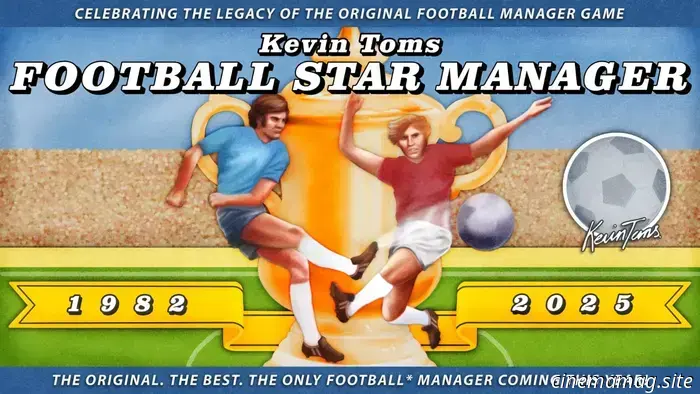 The renowned Kevin Toms is set to launch Football Star Manager on Steam this August.
In 1982, Kevin Toms created a game for 8-bit computers that would give rise to a completely new genre: Football Manager. Now, the pioneer of football management games, in collaboration with Curveball Games, has revealed that a remastered edition will be launched on Steam on August 14th, titled Kevin Toms Football Star Manager. A new trailer is available […]
The renowned Kevin Toms is set to launch Football Star Manager on Steam this August.
In 1982, Kevin Toms created a game for 8-bit computers that would give rise to a completely new genre: Football Manager. Now, the pioneer of football management games, in collaboration with Curveball Games, has revealed that a remastered edition will be launched on Steam on August 14th, titled Kevin Toms Football Star Manager. A new trailer is available […]
 G.I.s confront dinosaurs in Vietnam in the trailer for Primitive War.
With under a month remaining until the debut of Primitive War, a new trailer has been released for director Luke Sparke’s forthcoming action-thriller set during the Vietnam War. Adapted from Ethan Pettus' novel of the same title, the film centers on a reconnaissance unit that is on a mission to locate a missing platoon, only to find that they are not […]
G.I.s confront dinosaurs in Vietnam in the trailer for Primitive War.
With under a month remaining until the debut of Primitive War, a new trailer has been released for director Luke Sparke’s forthcoming action-thriller set during the Vietnam War. Adapted from Ethan Pettus' novel of the same title, the film centers on a reconnaissance unit that is on a mission to locate a missing platoon, only to find that they are not […]
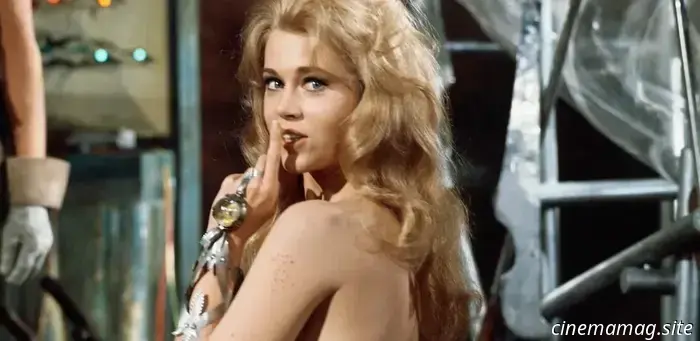 12 Icons from the 1960s Who Continues to Shine
These icons from the 1960s continue to thrive even after all this time.
12 Icons from the 1960s Who Continues to Shine
These icons from the 1960s continue to thrive even after all this time.
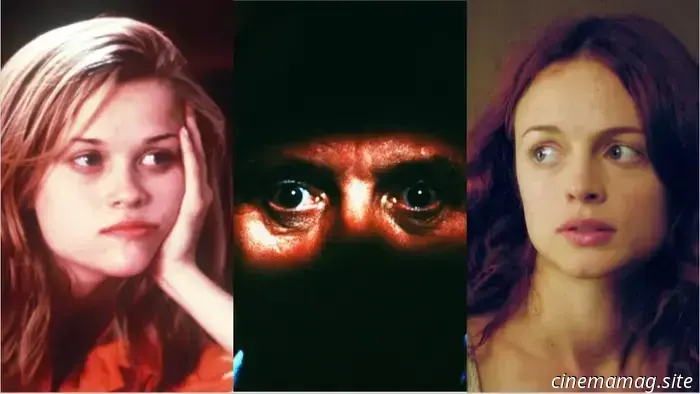 The 13 Greatest Serial Killer Films of All Time, Ranked
Here are 13 of the greatest serial killer films ever created. Some of them rank among the finest movies of all time, without a doubt.
The 13 Greatest Serial Killer Films of All Time, Ranked
Here are 13 of the greatest serial killer films ever created. Some of them rank among the finest movies of all time, without a doubt.
 Exclusive Trailer for Anna Eriksson's E, Premiering at Locarno, Takes a Voyage Through the Desert.
Finnish artist and filmmaker Anna Eriksson is making a return to the Locarno Film Festival this year with her newest feature, E. Set to premiere in the Fuori Concorso section, this avant-garde desert journey highlights the isolation of contemporary individuals and features performances by Eriksson, Parco Lee, Elize van Huyssteen, Johannes Haasbroek, and Jooseppi Pyykkö. In anticipation of its premiere, we are delighted to
Exclusive Trailer for Anna Eriksson's E, Premiering at Locarno, Takes a Voyage Through the Desert.
Finnish artist and filmmaker Anna Eriksson is making a return to the Locarno Film Festival this year with her newest feature, E. Set to premiere in the Fuori Concorso section, this avant-garde desert journey highlights the isolation of contemporary individuals and features performances by Eriksson, Parco Lee, Elize van Huyssteen, Johannes Haasbroek, and Jooseppi Pyykkö. In anticipation of its premiere, we are delighted to
Tiffany Kimmel's 'Civil Service' examines tyrants who harbor contempt for the very people they claim to serve.
Tiffany Kimmel, the writer and director of the daring new short film "Civil Service," explains that her journey to becoming a storyteller is rooted in a complex background: "I was raised
